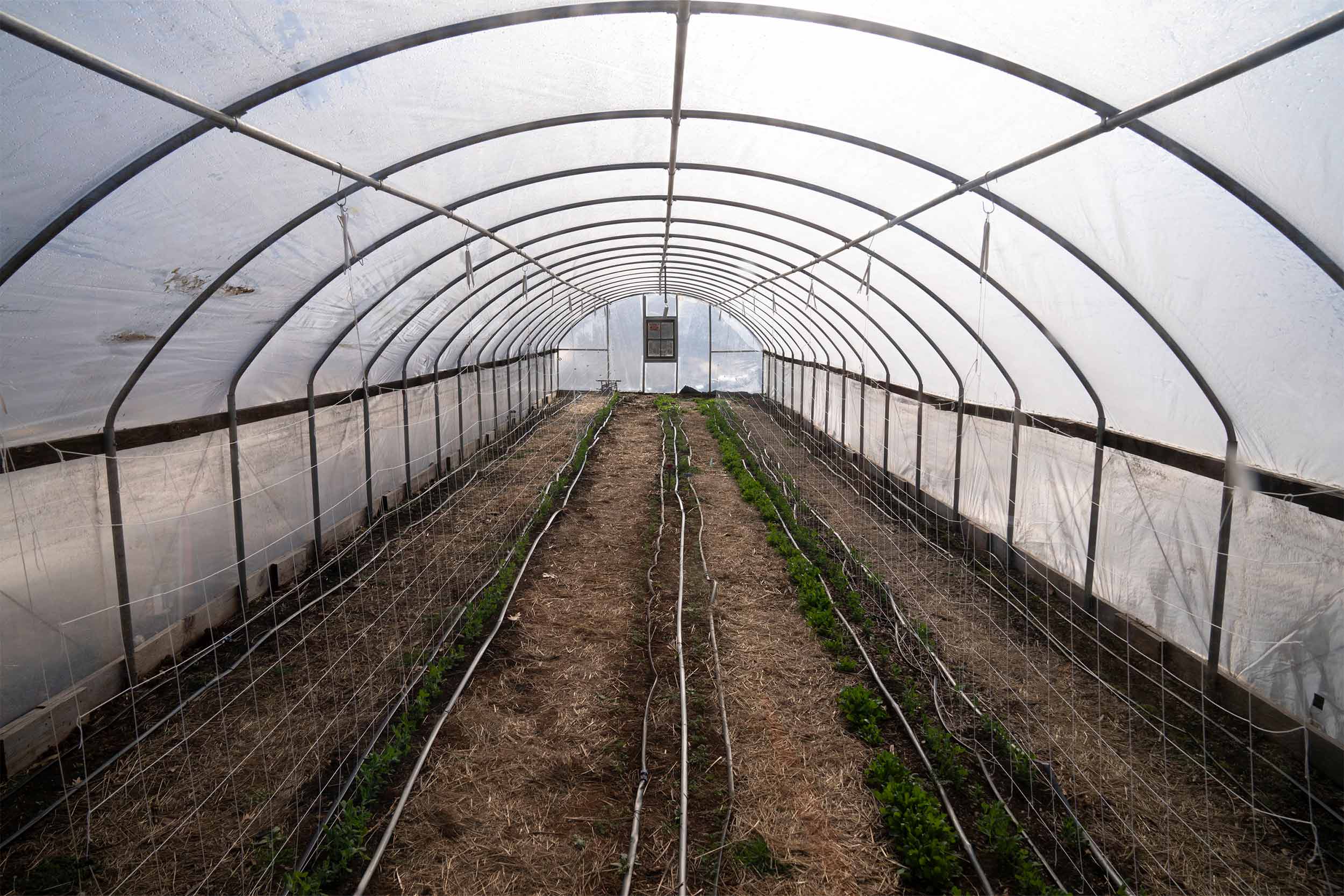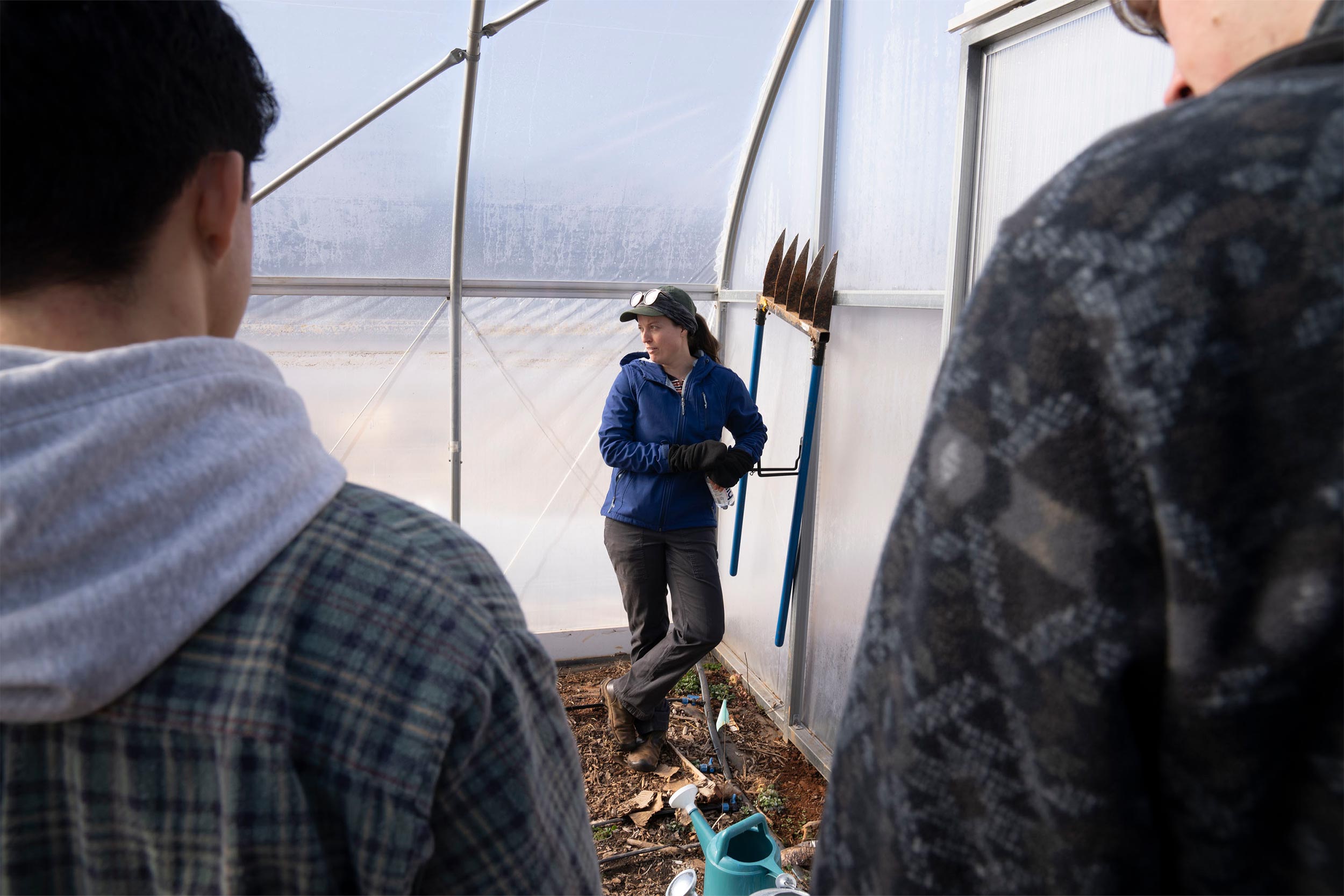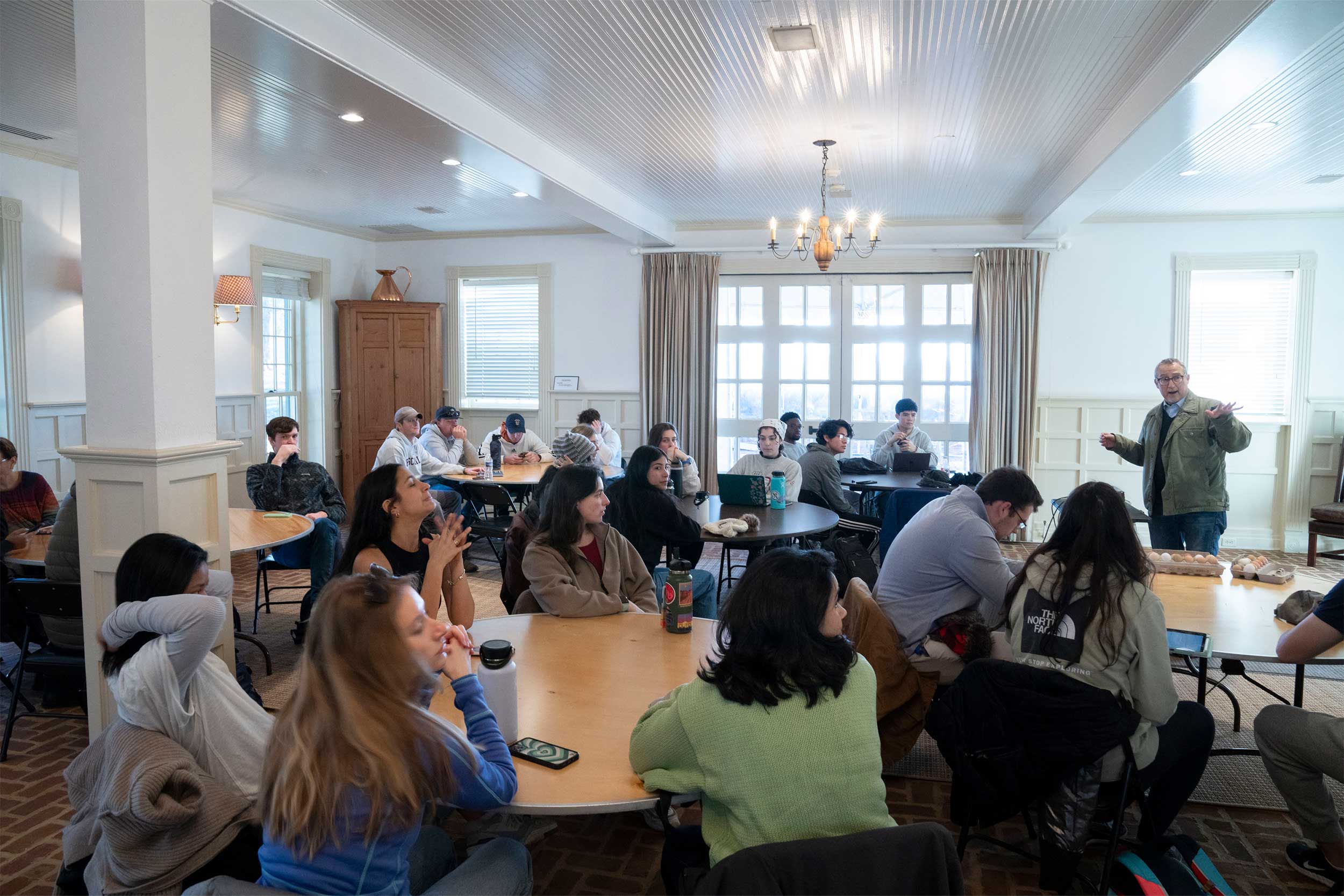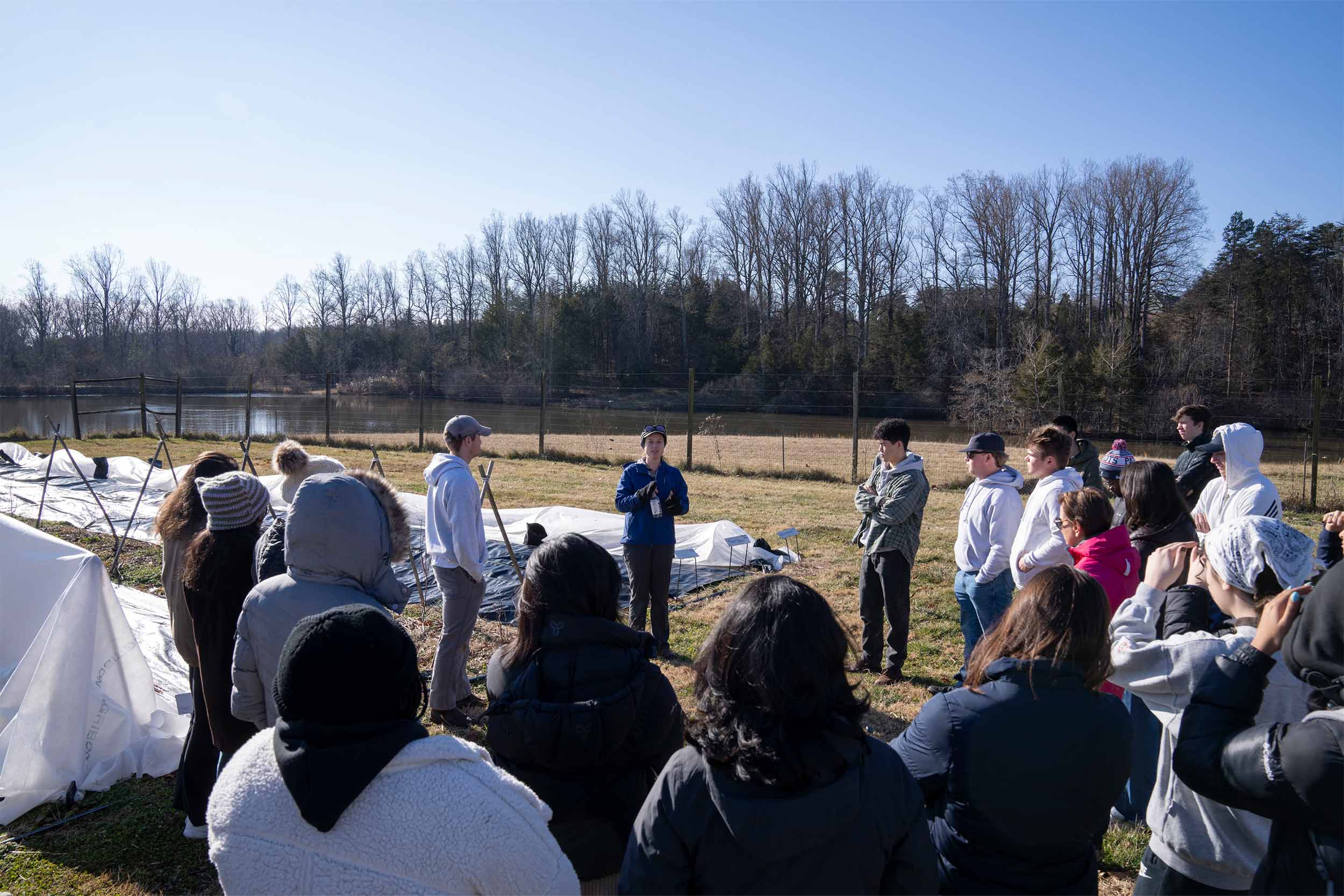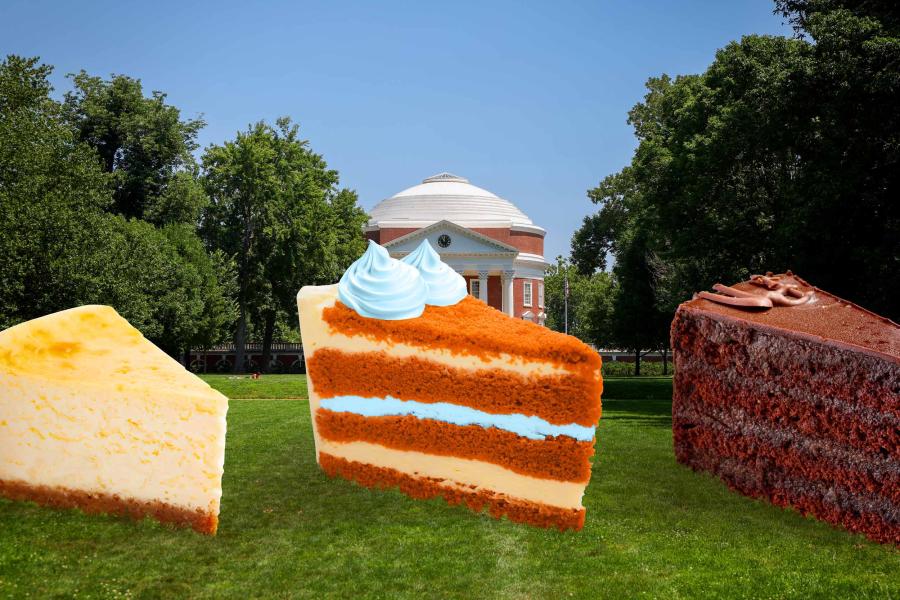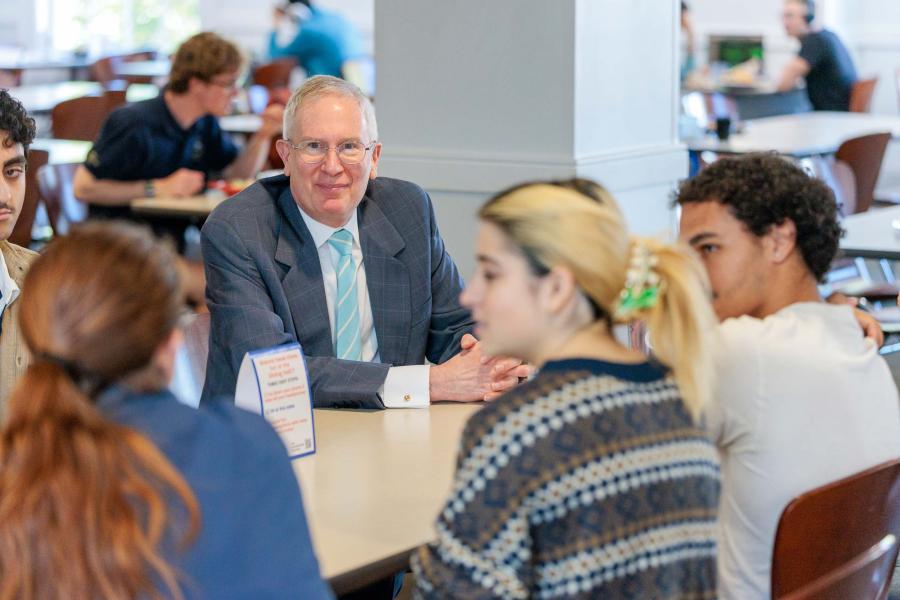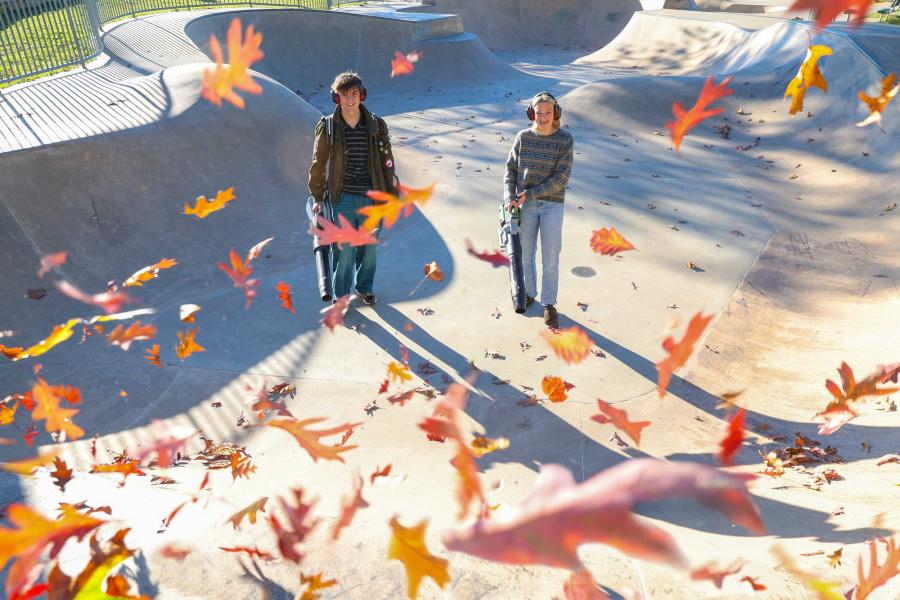They took a lesson from a woman out standing in her field.
About two dozen University of Virginia students in Paul Freedman’s January term course on the Politics of Food clustered around Fiona Flynn, manager of the University’s Morven Kitchen Garden, a program of the Morven Sustainability Lab, listening carefully to explanations of crop rotation, hoop-house growing, soaker-hose irrigation and combination planting.
Flynn compared the Morven Garden’s eight growing plots of 30 to 40 rotated crop varieties with large commercial operations’ monoculture – a single crop on a single acre. She also talked about marketing Morven’s produce, much of which is purchased by Aramark and served in UVA dining halls.
Freedman has been teaching the Politics of Food for 14 years, starting it as a January term course before expanding it into a full-semester offering as well.
